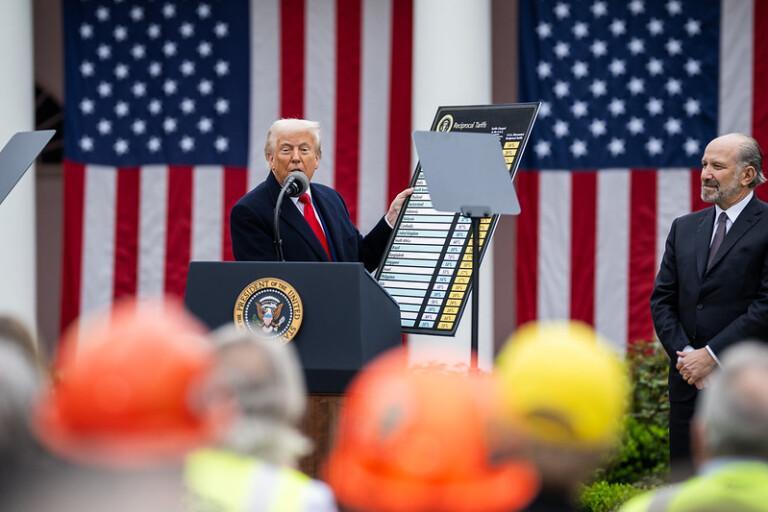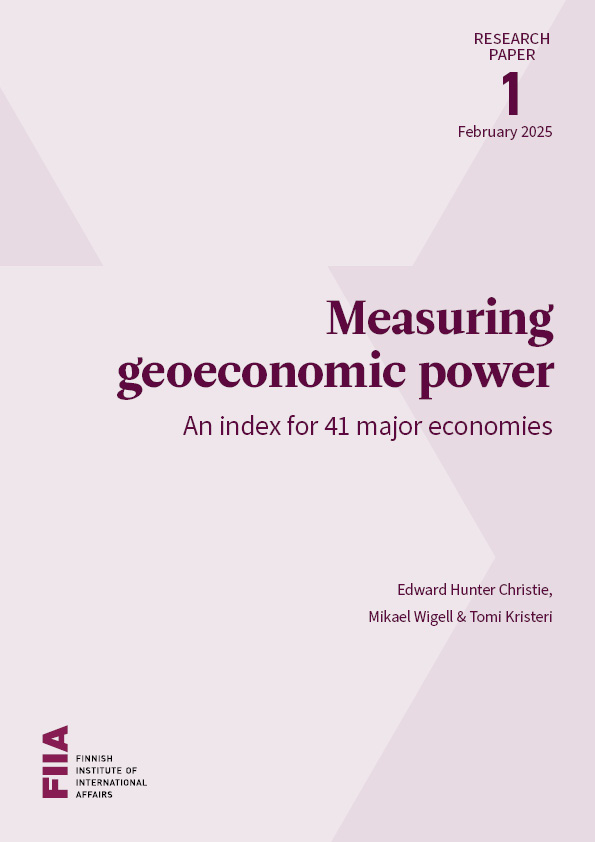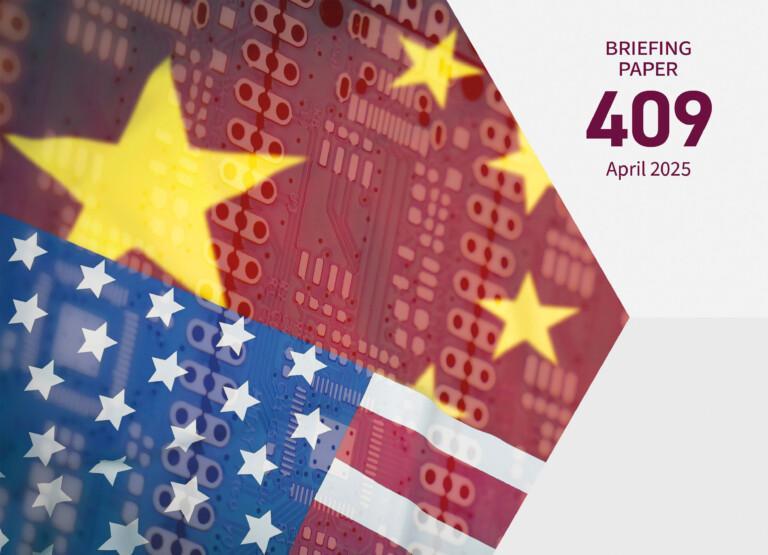
US President Donald Trump’s tariffs are a move towards strategic capitalism, namely an economic model in which the state forces the market to address wide-ranging strategic and security goals. The move is aggressive in terms of the speed and scale of change the United States has imposed on others, including allies.
On 2 April, Trump announced a sweeping new tariff regime. It features a universal 10% tariff on goods imports from all countries, effective 5 April, and a set of higher country-specific “reciprocal tariffs” targeting nations with large trade surpluses, effective 9 April. This second group includes the European Union (20%), China (34%), Vietnam (46%), and India (26%). These rates come on top of previous tariff decisions and may rise further in case of tit-for-tat retaliations. On 8 April, following Chinese retaliation, Trump raised tariffs on Chinese goods to over 100%.
The tariffs, should they hold, are universally expected to have strongly negative economic impacts on all targeted nations, likely tipping multiple countries into recession. The expected effects on the US include significantly higher inflation, lower growth, and likely a recession in case of significant retaliatory measures by other states.
Viewed through a market economics lens, Trump’s tariffs make no sense. But Trump’s team is populated by economic nationalists. Their ostensible goal is to shift the US from an open, interconnected economy towards an industrial powerhouse that is self-sufficient in strategic sectors such as shipbuilding and semiconductors. Seen through this geoeconomic lens, Trump’s tariffs are viewed as “liberation” from trade dependencies. Whether the tariff undertaking is fit for purpose in achieving these strategic goals is another matter.
If tariffs are here to stay – intended not as a bargaining tool but to usher in a new era of US strategic capitalism – such an outlook must be reckoned with. It implies that the EU and other major trade partners will have only limited success in negotiations with the US over tariff relief.
Two domestic political scenarios seem plausible. The first is that macroeconomic or stock market damage will trigger a political rebellion from Congress, driven by voter discontent. Trump was elected to bring down prices, but tariffs will push them up. In scenario two, should Trump prevail in any domestic political fight, there will be an acceptance of the new axiom of strategic capitalism. If this unfolds, one can expect a long-term transformation of US external economic policy, as trade barriers will create new domestic political constituencies that would fight to maintain tariffs under any future administration.
Such a turn of events might encourage an even more capricious and predatory United States. One immediate consequence is that the US is now seen as untrustworthy: Trump ripped up the trade agreement with Canada and Mexico that he renegotiated and signed during his first term. At the same time, the global audience sees the tariffs as both amateurish and indifferent to their abrupt effects on others, from US small businesses to longtime allies. Tariffs are a blunt instrument. They have not been selectively applied to onshore critical industries, nor do they promote friend-shoring. Their application comes in addition to predatory economic intentions, most clearly towards Ukraine’s and Greenland’s natural resources.
Trump’s tariffs are being pursued at great cost to traditional trading partners, and with the threat of additional economic escalation should countries choose to retaliate. The Trump administration appears to believe it can upend the global trade in goods – in which it has a deficit – while keeping its surplus in services and its large incomes from foreign investments. Whether other countries will be so kind as to leave US advantages in these areas untouched will be a key issue going forward.
The current situation presents an incentive for other countries to retaliate in order to deter the US from further bullying. Some of America’s allies fall into that category, with notably the EU already retaliating to earlier tariffs. However, there could be collective commitment problems in assembling an “economic coalition of the willing” to jointly retaliate against the US. Indeed, many countries have already signalled they will not retaliate, including Australia, India, and Vietnam.
Instead, countries may undertake experimental, stepwise retaliation to see how Trump reacts. Some might try to salvage remnants of the pre-existing relationship through negotiation; even the EU has said that it prefers this route. The UK is in the delicate position of either taking the relative win of a tariff of “only” 10% or retaliating, just as it considers closer alignment with the EU.
In all likelihood, most countries will seek damage limitation in the short run, while quietly but strongly revising their economic policies. Large states and existing trading blocs, such as the EU, might conclude that they, too, should move to a new economic model based on stimulation of domestic demand, stronger industrial capabilities, and greater economic security. Small open economies that are not part of a major trading bloc might be pressured to trade their sovereignty for the economic security of an alliance.
If strategic capitalism becomes the new normal, it will not only be manufacturing and raw materials that come under scrutiny, but every area of economic exchange, from digital platforms and data centres to financial services and the role of reserve currencies. With Trump’s tariffs, the world enters an era of strategic decoupling and potentially radical redistribution of power among states. It will be a considerably more dangerous world for Europe unless it invests massively in its own capabilities in all strategic sectors and continues to build new partnerships.











